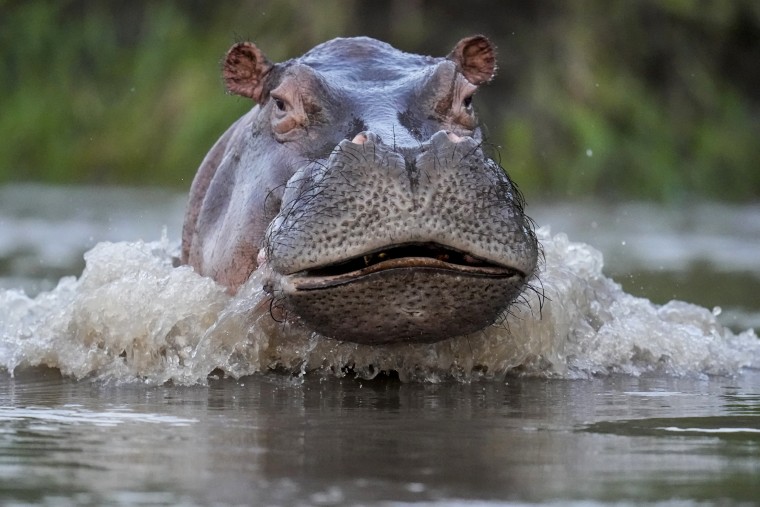BOGOTA, Colombia — A hippopotamus descended from animals illegally brought to Colombia by the late drug kingpin Pablo Escobar has died in a collision with an SUV on a highway near Escobar’s hacienda, environmental authorities said Wednesday.
The hippos, which spread from the estate into nearby rivers and now number more than 100, have no natural predators in Colombia and have been declared an invasive species that could upset the ecosystem. The crash late Tuesday reflected the additional danger that hippos, which weigh as much as 2 tons, can pose to motorists.
The vehicle occupants were unharmed in the accident in the northwest on a highway from Bogotá to Medellín, police said. The hippopotamus died immediately afterward and was removed to be analyzed, environmental authorities said.
“This is one of the dangers that the presence of this species represents. Many of them cross the highway where many vehicles pass, it is also a danger to people,” said David Echeverri López, a biologist at Cornare, the local environmental authority.
“Hippos are unpredictable, at any moment they can attack a person,” he added.
The “cocaine hippos” are descendants of animals that Escobar illegally imported to his Colombian ranch in the 1980s when he reigned over the country’s drug trade. After his death in a 1993 shootout with authorities, the hippos were abandoned at the estate and left to thrive with no natural predators.
Native to Africa, hippos were declared invasive in Colombia last year, and environmental officials say their population of about 130 could rise to 400 in eight years. Most of the hippos live freely in rivers and reproduce without control.
Residents of nearby Puerto Triunfo have become used to hippos sometimes roaming freely about the town.
Colombia has proposed transferring at least 70 of the animals to India and Mexico to control their population. Scientists warn that the hippos’ feces change the composition of rivers and could affect the habitat of manatees and capybaras.
